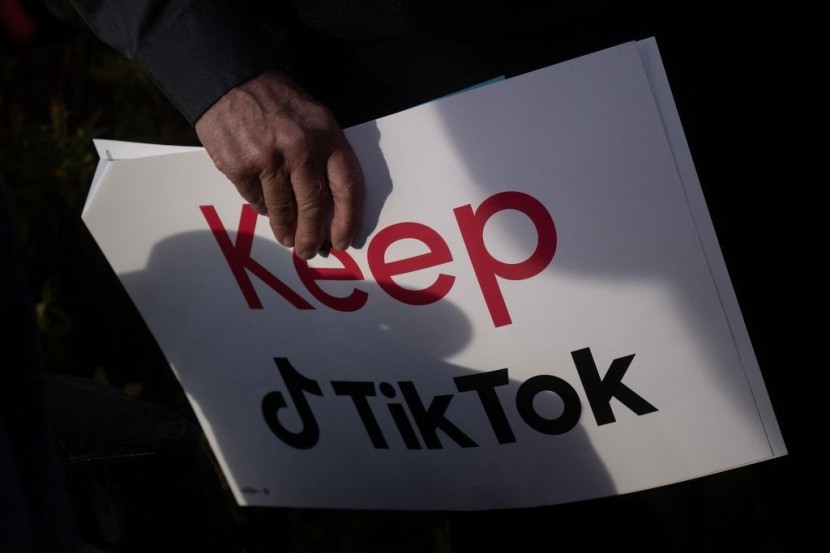
- TikTok has never been available in China, despite its global popularity
- TikTok struggles to survive in the United States as pressure on Washington to ban the app increases
- The Facebook video claiming to display a list of restricted applications in China is false
China has its version of the app, known as Douyin. Therefore TikTok has never been accessible there. ByteDance, a Chinese company, owns both applications.
By the start of March 2023, rumors began circulating on social media platforms that TikTok had been banned in China. A video was posted to Facebook on February 17, 2023, claiming that the country has banned the social networking platform.
Is TikTok Banned in China?
Writer Hank Green and conservative commentator Steven Crowder stated on Twitter that the app had been blocked in the country. Since its 2016 release, TikTok has not been available in the country. Yet, no official proof is verifying or disproving China's ban on TikTok. We thus evaluate the claim as unproven.
At the time of publishing, the social media applications TikTok and Douyin were owned by the Chinese business ByteDance. TikTok is available worldwide, yet the app cannot be found in the Chinese app store. Instead, you would encounter Douyin, dubbed China's TikTok rival.
Per Snopes, it is hosted on a separate server from TikTok, which academics ascribe to ByteDance's compliance with China government internet rules. Internet access is provided for Douyin. As we inspected the website, we saw it was entirely in Mandarin and had a comparable architecture to TikTok, including a logo and share and like buttons.
The Facebook video claiming to display a list of restricted applications in China is bogus. It was a list of the most downloaded non-gaming applications globally in September 2020. While some of the applications on the list were restricted in China at the time of publishing, others, such as Zoom, remained accessible.
The allegations surfaced at the same time that TikTok CEO Shou Zi Chew appeared for the first time before Congress on March 23. Because of national security concerns, at least 27 US states have banned the software on government devices, and there have been demands for a statewide ban.
Several nations have already prohibited the app. In January 2021, India will ban TikTok completely, while Norway and Denmark have banned the software from work devices. According to CNN, TikTok is one of many platforms with viral popularity in the United States that the Chinese control. Four of the ten most popular free applications in Apple's (AAPL)US app store were created using Chinese technology.
In addition to TikTok, ByteDance owns the shopping app Temu, the quick fashion retailer Shein, and the video editing tool CapCut. TikTok has more than 150 million monthly users in the United States, about half of the country's population.
It remains to be seen if TikTok can persuade US legislators that it does not represent a threat. However, the confrontation in Washington has brought broader problems about security and data privacy that might bring other applications under scrutiny.
China may prefer that TikTok be outlawed instead of falling into US hands. Given the number of US investors and users on international platforms, he stated that the US needed a "more sophisticated structure for regulating the large digital corporations."
Read Also : North Korea Tests Underwater Nuclear Drone
TikTok Ban Ultimatum in US
Meanwhile, China on Friday denied pressuring companies to collect information abroad on behalf of the government, refuting claims made by American lawmakers about TikTok, which is at the center of an escalating dispute between Washington and Beijing regarding politics, technology, and economics.
Mao Ning, a spokesperson for the Chinese Foreign Ministry, stated during a news conference that China "has never and would never" urge companies or people to gather data kept in foreign nations violating their laws.
During a five-hour congressional session, US senators interrogated TikTok's CEO, Shou Chew, about the app's links to its Chinese parent firm, ByteDance, and its likely use as a surveillance tool by the Chinese government.
TikTok, which has around 150 million subscribers in the United States, has become a geopolitical flashpoint between the world's two largest economies, as seen by China's response to the hearing.
On Thursday, hours before Chew's hearing, China's Ministry of Commerce stated that it would resist a forced sale of the app, a rebuke to the Biden administration, which had demanded that the app's Chinese owners sell it or face a possible ban in the United States.
Last month, the White House sponsored a bipartisan Senate bill that would give the Commerce Department the authority to ban any app that posed a security threat to Americans, putting prospective limits on TikTok on a firmer legal foundation.
Legislators and authorities in the United States are concerned that China may coerce TikTok to pass over sensitive information about American users or alter its recommendation system to promote propaganda. As per NY Times, they point to sweeping Chinese rules that force people and private businesses to participate in public security inquiries and intelligence operations.
At Thursday's session, legislators frequently questioned Chew about ByteDance's admission that staff, including two American journalists, had gotten the data of US customers. As a result of the February finding of a Chinese surveillance balloon floating above US territory, tensions between the superpowers escalated. Recently, a Republican lawmaker described TikTok as a "spy balloon on your phone."
Related Article: China Accuses US of 'Unreasonably Supressing' TikTok
@YouTube
© 2025 HNGN, All rights reserved. Do not reproduce without permission.








